Omar Naim is a writer and director from Lebanon. He has made three feature fiction films and two documentaries, both about the theatre and the city of Beirut, shot nearly twenty years apart. They are being shown here together for the first time. Grand Theatre: A Tale of Beirut was his thesis film, shot in the summer of 1998, less than a decade after the end of the 1975-1990 Lebanese Civil War. It was a student Academy Award finalist. In 2016, two years into a presidential crisis in Lebanon, he shot Madinatan (Two Cities), a documentation of the 20th anniversary celebrations of the Al-Madina Theatre in Beirut. Madinatan was acquired by BBC Arabic and screened on TV both there and on LBC. These are his reflections on the making of these two films.
When I was a boy, theatre was like God: I had absolute faith in it, despite never seeing any evidence that it existed. I was raised in Jordan, Cyprus and Beirut in the ‘80s and early ‘90s. Except for school plays, there just wasn’t much theatre around to be seen.
Then again, my mother is Nidal Ashkar, Lebanese actress and director, star of Arab stage and screen, and later the founder of the Al Madina Theatre on Hamra street. At home, the power of theatre was never in doubt. My mother sacrificed for it, fought for it, shaped her life around this art form. It was akin to being raised by the clergy of a dead religion. She did put on two amazing productions during this period, 1001 Tales from Souk Oukaz, and Al Halaba, which left a deep impression on me, but an impression in the shape of my mother, not necessarily theatre. Those works seemed more like an extension of her personality and less like examples of a medium.
At 13, I was struck down with a mad love for the movies. Unlike theatre, film was everywhere. VHS was the great equalizer. From our Lebanese village home, I could steep myself in film as deeply as a young film lover might do in Los Angeles or Paris or New York. When I arrived at film school in Boston, I was as fluent in film as any of my peers. I wanted to learn and to succeed, but I also wanted to do some good: being an Arab watching Arabs and other Middle Easterners on film was often painful. I don’t need to explain that to you: we were bad guys, oafs, extremists, people who kidnapped Sally Field’s daughter.
In 1998 I had to choose a subject for my BFA thesis film. I wanted to write a musical grand guignol of Hansel & Gretel. My advisors wisely suggested that perhaps, instead of adapting a Germanic fairy tale, something anyone could do, what if instead I made a documentary about my home country? This was good advice that I resisted with all my will. I was slightly offended — why couldn’t I make a fanciful, stylized art object? Why was it fait accompli that since I was from a “troubled” country I had to make a documentary? I told them, “What a great idea,” all the while thinking, “Fuck you, I’ll show you.”
My plan was to pretend to be making a documentary, and then, when I arrived in Lebanon with the school’s crew and equipment, I’d make whatever the hell I wanted. I vaguely remembered the Grand Theatre, an old abandoned stage, from a school trip and my mother’s attempts to refurbish it in the early nineties. I told them the idea for the documentary was Theatre of War. Yes, lame, I know. I thought that was the sort of thing they’d green light, and I was right.
Then something unexpected happened — I fell in love with documentaries and with my Trojan horse subject itself. The story of the Grand Theatre actually had rich metaphorical power; it was very visual and beautiful; and most importantly for a documentary, I had access. Through the theatre world that my family was deeply connected to, I could get interviews and archival footage that others would be denied. The more I researched, the more a simple but powerful equation solidified in my mind: the story of the Grand Theatre was the story of Beirut. It was a perfect microcosm, a way to explore my feelings about my home in an indirect way, a hopefully artful way — a fact-based film as far away from journalism as you can get.
We filmed in the summer of 1998. Lebanon was in a period of stagnation, but it seemed that hope was around the corner. The war had ended less than a decade before, and a flood of money was pouring into the country. Downtown Beirut was a massive construction site, the skyline full of cranes and the skeletal beginnings of new buildings. The street where the Grand Theatre stood — right in the heart of the former Green Line, the site of the most heated battles between the various militias who fought the civil war — was still mostly a blasted ruin. That summer was unspeakably hot and humid, especially inside the dusty, debris-filled theatre itself. But we were all in our early twenties, so rolling around in the dirt for the sake of art was our idea of heaven.
Documentaries are a much looser mode of filmmaking than fiction films, and the latitude for experimentation is quite high. I often film things and find out later why I filmed them. The formal elements of interviews, archival footage, and B-roll allow for just about any idea to be expressed as you stitch them together later in the editing suite — provided you’ve shot the images to make that possible.
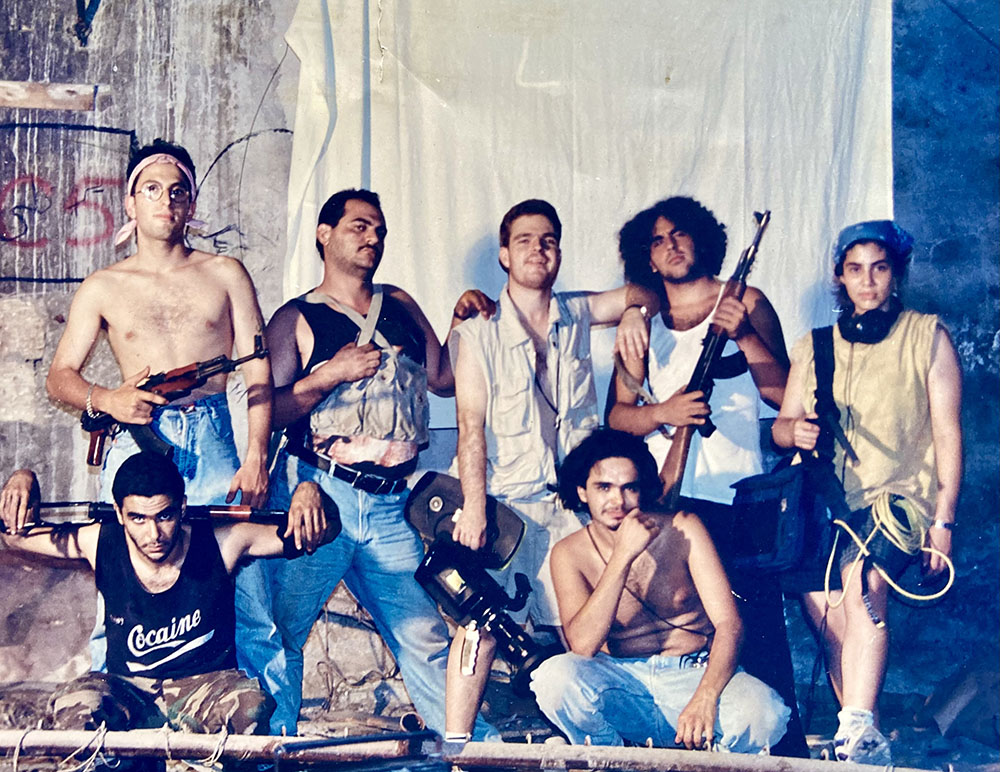
From my pre-interviews, I had the gut feeling that one of the thematic threads of the film was going to be the unreality of the civil war. The war had been fought by young people, teenagers really, their heads full of pop images of warfare from Cuba and Africa and Russia. It had been a very theatrical war, and so many of the archival images of the young militiamen — shirts open down to their waists, cigarettes clenched between their lips, long, feathered hair flowing and Kalashnikovs slung over their shoulders — already seemed like stills from a movie set. I felt that something interesting would emerge from that idea. So, in addition to all the other footage I shot, I filmed short dramatized sequences, with actors, meant to look like actual documentary footage from the ‘80s.
In the film, our interlocutors tell the story of the first time a play was presented to a Lebanese audience at the turn of the 20th century. Stunned by this unknown ritual, people had interrupted the production and tried to interfere with the conflict and patch things up between the characters. They’d thought it was real. I decided to use the dramatized footage in the same way, to make the audience, if only for a moment, think that those scenes were also real, putting them in the shoes of that first theatre audience. (Subjectivity is a beautiful feeling to generate in a documentary, that bastion of the so-called objective).
The major theme of the film emerged as that of a contested reality. Nobody could agree on anything about the Grand Theatre, much as we, the Lebanese, can’t agree on our own history. The film concludes with the arrival of the real-estate developer, Solidere, and promises of a bright and shiny future: they would rebuild the Grand Theatre and rebuild Lebanon. Yet even then, I had my doubts, and the closing moments of the film are dark and dissonant.
The Grand Theatre sits abandoned and unreconstructed to this day.
Almost 20 years later, I was asked to document the 20th anniversary of the Al Madina Theatre. This is the theatre my mother opened when she failed to secure the Grand Theatre as an active stage all those years ago. To celebrate 20 years of survival, the theatre was putting on a two-week extravaganza of 20 shows, featuring dozens of actors and directors, including my own father, Fouad Naim, who directed an Arabic adaptation of Ionescu’s absurdist drama, Exit the King. I felt this was an opportunity to do more than just film a festival of productions, but to make another film comparing Beirut and a theatre. This time, the idea was that Masrah Al Madina (The City Theatre) was a high functioning community rooted in mutual respect and creativity, while our actual city of Beirut was based on sectarianism, cults of personality, and was actively trying to kill us on a daily basis. This was 2016, the peak of the garbage crisis and the political crisis that had left us without a president for two entire years at that point.
Beirut is a world of lies — the lie of eventual prosperity, the lie of stability, the lie of a functioning state — run by a cabal of liars who play protective chieftains in public and fleece their partisans in private.
Well, we thought it was the peak of the crisis, which was a failure of our imagination. 2016 proved to be only the gateway to years and years of economic collapse, political corruption, heightened sectarianism, an exploding port, and a never-ending shitstorm of injustice and pain.
My intention was to make an omnibus film of the Lebanese theatre scene, something like a documentary version of Robert Altman’s Nashville. That turned out to be unwieldy and unnecessary — the various characters, all of them actors and directors, were all telling the same story, a story of creative resistance to overwhelming darkness. By focusing on only a handful of players, mainly my own parents, I could tell the most powerful version of the story, and the most personal.
Inside the Al Madina Theatre is one world, outside is another, and the contrast is the very embodiment of dramatic irony. Beirut is a world of lies — the lie of eventual prosperity, the lie of stability, the lie of a functioning state — run by a cabal of liars who play protective chieftains in public and fleece their partisans in private. But in the theatre, where the play is the thing, a lie is a bum note, a failure of art, and is immediately clocked. Be it a fakey performance, or a bad line of dialogue, or a light in the wrong place, the living organism that is the play cannot bear it. So what happens when the truth-telling on stage collides with the deception in the street? It’s a clash of values, and that’s what Two Cities is ultimately about.
But what can film contribute to the theatre? A play is an ephemeral thing, it happens and then it’s gone forever. A filmed play is hardly the same experience, so film cannot preserve theatre in that way. What film can do is preserve the struggle. Most actors and directors in Lebanon cannot make a living purely from their creative work. They often have multiple jobs and families to support, yet still feel the calling to play pretend on stage, all while surviving Beirut’s Sisyphean daily grind.
One day, I hope to make a third documentary, and complete this trilogy of theatre films. So far I’ve made two tragedies. I keep waiting for the right subject and the right moment to tell a hopeful story for a change. It may be just around the corner. Or I may be waiting forever, like the Grand Theatre itself, gloomy with sorrow, a shell of a beautiful thing, now just a memory.



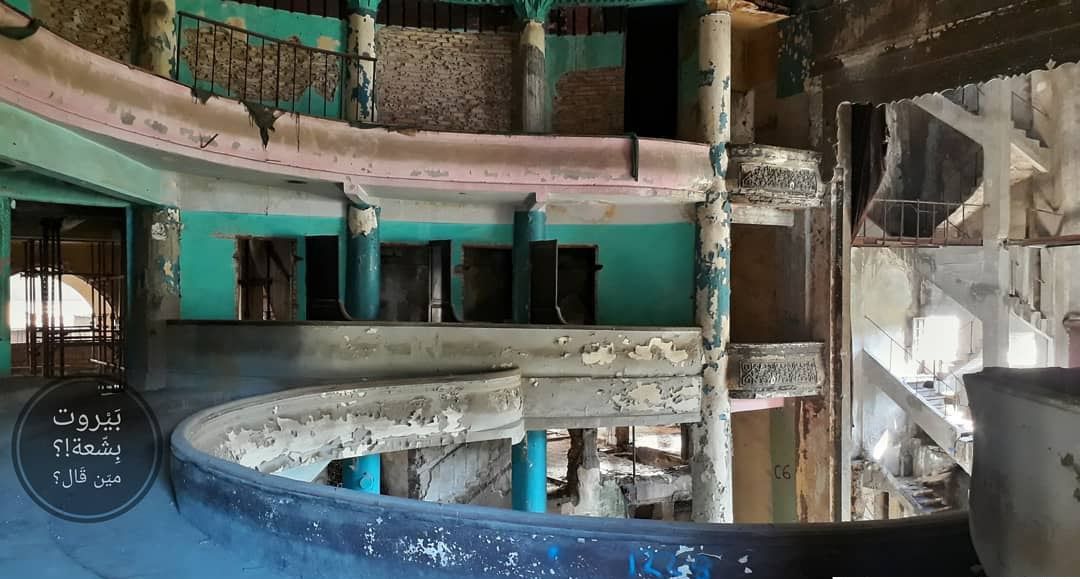
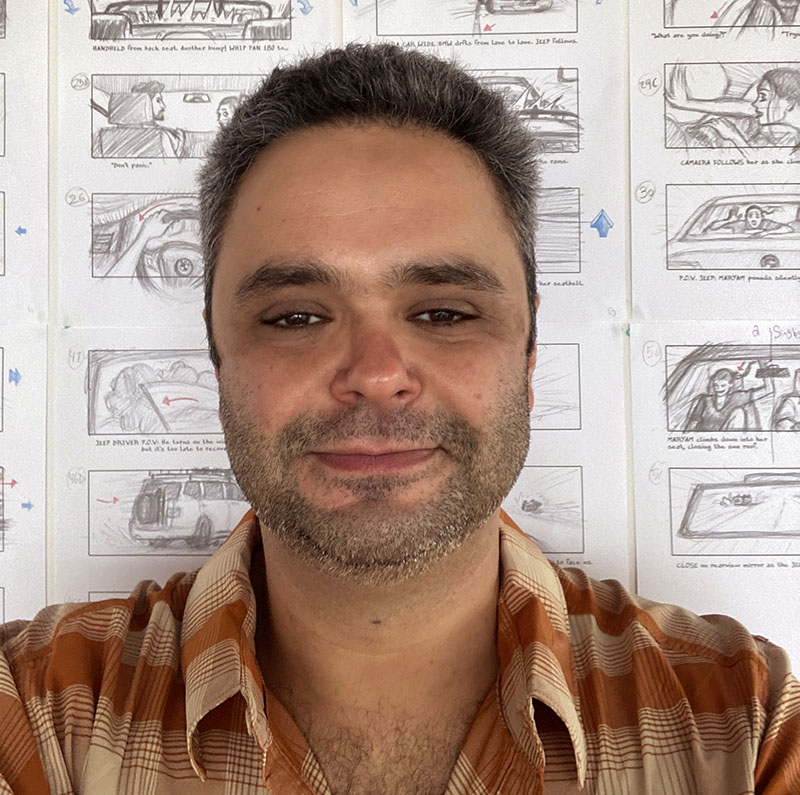



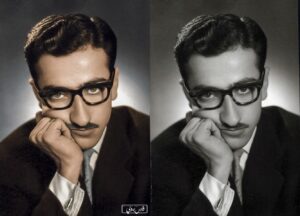


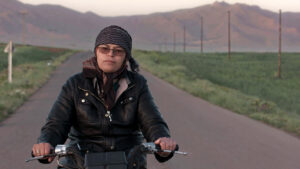
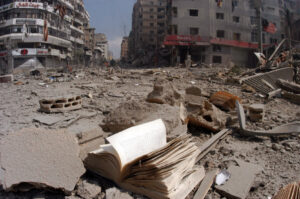




![Ali Cherri’s show at Marseille’s [mac] Is Watching You](https://themarkaz.org/wp-content/uploads/2025/09/Ali-Cherri-22Les-Veilleurs22-at-the-mac-Musee-dart-contemporain-de-Marseille-photo-Gregoire-Edouard-Ville-de-Marseille-300x200.jpg)





















































































The most beautiful piece I have read on Beirut in a long time, piercing with truth about this city of lies, delusions and perverted decadence